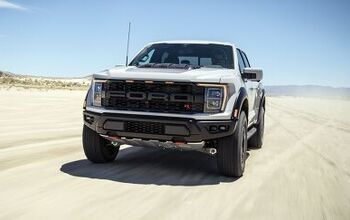These Are the Most Reliable Cars in Each Category, Says J.D. Power
Recent findings from J.D. Power show that after three years of ownership, vehicle dependability has diminished. Owners are reporting more problems compared to the previous year, with the industry average escalating to 190 problems per 100 vehicles (PP100). The disparity in problem rates between the initial 90 days and three years of ownership has surged, indicating a notable decrease in vehicle dependability over time.
Electrified Vehicles: A Mixed Bag
Owners of BEVs and PHEVs report more problems than those with gasoline and hybrid vehicles, with tire replacement being a notable issue for BEV owners.
Segment-by-Segment Breakdown
The study lists the most reliable vehicles across different categories, with Toyota Motor Corporation achieving the most segment awards. Here is an organized summary of the top-ranking models:
Compact and Midsize Cars:
Compact Cars:
- Toyota Corolla
- Honda Civic
- Toyota Prius
Compact Premium Cars:
- Lexus IS
- BMW 4 Series
- BMW 3 Series
Midsize Cars:
- Toyota Camry
- Chevrolet Malibu
- Hyundai Sonata
Midsize Premium Cars:
- Lexus ES
Premium Sporty Cars:
- Porsche 718
- Chevrolet Corvette
Pickup and Van Segments:
Large Heavy Duty Pickups:
- Ford Super Duty
- GMC Sierra HD
- Chevrolet Silverado HD
Large Light Duty Pickups:
- Toyota Tundra
- GMC Sierra
- Chevrolet Silverado
Midsize Pickups:
- Toyota Tacoma
- Chevrolet Colorado
- Ford Ranger
Minivans:
- Kia Sedona
- Toyota Sienna
- Honda Odyssey
Standout Brands
Lexus is recognized as the most reliable brand overall, followed by Porsche and BMW for premium brands. In the mass market, Toyota ranks highest with Buick and Chevrolet in a close contest for reliability.
Methodology of the Study
The study reflects the experiences of over 30,000 owners of 2021 model-year vehicles after three years. It encompasses 184 problem areas across nine vehicle categories to provide a detailed analysis of long-term vehicle reliability.
This article was co-written using AI and was then heavily edited and optimized by our editorial team.
More by TTAC Staff
Latest Car Reviews
Read moreLatest Product Reviews
Read moreRecent Comments
- 1995 SC ICE engines are cleaner, more efficient and more powerful than ever. I wonder if we went back to double digit horsepower and 0-60 times if they could crank out hybrid level fuel economy without the battery. Alas I need 500 HP to pick up my groceries. Can't have the beer getting warm before I get home. A Prius is just shy of old school 5.0 power nowadays
- Zerofoo Farley's blunder here is that the "Tesla and Apple people" are not a large enough market to support all the car companies that want to sell EVs. Chinese manufacturers alone could meet the demand of that market entirely without western companies at all.Farley's must accept that many people don't want an EV at ANY price. EVs, even with advanced battery chemistries, still require long charging times and when the battery is dead there is an unavoidable charging interval before you can get going again.Liquid fueled cars simply do not have these limitations, are readily available and affordable, and have vast aftermarket parts and maintenance support. This mix of convenience and support may never exist for EVs.If I could run my mobile phone and laptop on liquid fuels I probably would. Battery power, in many products, feels like a step backward.
- Theflyersfan I'm in the camp of that not all speed kills, but extreme speed differential kills. On a long drive, I can fall into a groove with long haul traffic going 75-80 in a 70 to 75 mph zone. No driving crazy or dangerous. What causes many wrecks in those situations are those going 50 in the left lane (way too common here), scared mergers entering at 40 mph, semis blocking multiple lanes, and unsafe drivers not using lights or driving unsafe cars. I also think the rise of 500 hp, 6,000 pound SUVs have dulled people into not realizing how quickly they are moving. It's almost like cruising at 38,000 feet if the SUV is comfortable. 85 mph in that is nothing until sudden braking or swerving is needed. Then Newton's laws take over. Compare that to a 2,300 lb MX-5 a few inches off of the ground. When you go 80, you know it. The engine and noise remind you! And you respect the speed a bit more.So I'm against speed limiters. I'm for much stronger enforcement and education and graduated licensing.
- Srd275 Enough of the nanny state
- 28-Cars-Later I realize it would be rewarding failure but could we force the legislatures and Congress critters to only work for six months out of the year to limit the damage and overall level of stupidity released?


































Comments
Join the conversation